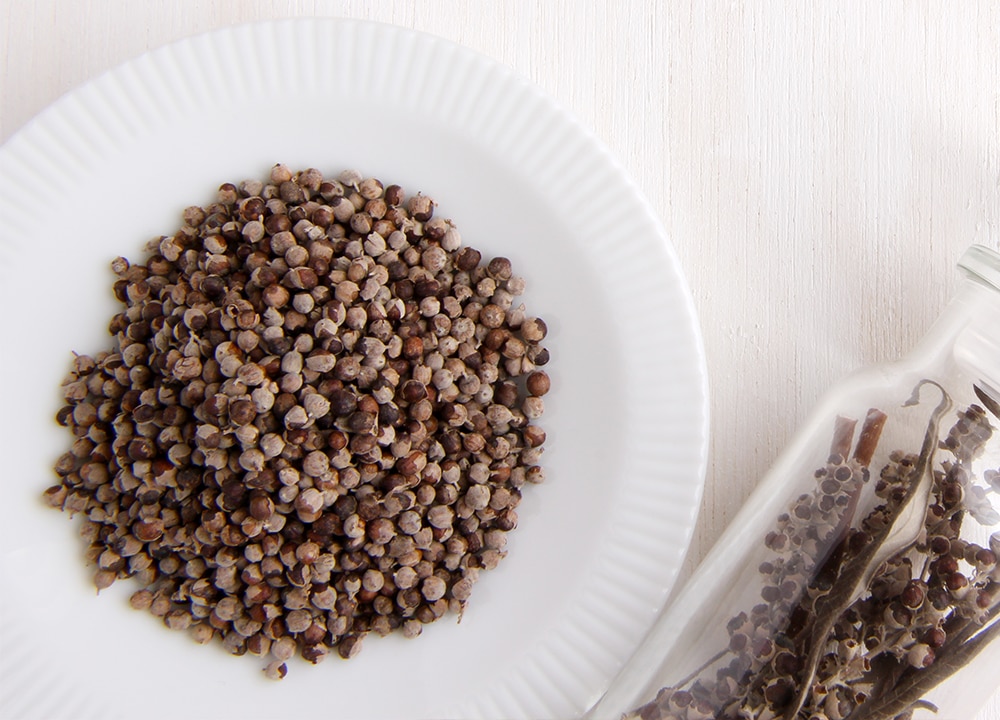20% off €35
8 expert tips to help you manage menopause symptoms

The menopause may be inevitable, but there’s a lot you can do to manage your symptoms. Here’s the latest expert advice, plus how partners can help.
If you’re sweating your way through the menopause, you’re not alone; up to 90% of women say they experience symptoms at some point during their menopause – half of which were ‘troublesome’.1
From hot flushes and headaches to weight gain and bloating, there are many signs and symptoms of menopause. Every experience of menopause is unique, and some signs can vary dependent on whether you’re in perimenopause, menopause or post-menopause. So, is there anything you can do to make your menopause symptoms more manageable?
To help you through the transition, we’ve asked 3 UK experts for their advice on how to manage your menopause symptoms, and we’ve compiled 8 of the best tips below.
Dr Louise Newson, a GP specialising in menopause
Dr Louise Newson, a GP specialising in menopause
1. Stop smoking and cut back on alcohol: Both these bad habits increase the intensity and length of hot flushes, so drink within the recommended limits of alcohol, which is 14 units per week. Try not to drink every day and instead spread it out over 2 to 3 days.2
2. Think about cognitive behavioural therapy: This technique, which helps retrain your thinking, has been NHS-approved for menopause-related anxiety, low mood, hot flushes, and palpitations since 2015.3 Ask your GP to refer you if you’re interested.


3. Support your bones: Around 10% of bone mass is lost in the first five years of the menopause, increasing your risk of fractures.4 Take 10mcg of vitamin D daily, and include bone-strengthening exercise, like walking, tennis, dancing and weight-lifting, in your fitness routine.4
Susie Debice, food scientist and nutritionist
Susie Debice, food scientist and nutritionist
4. Keep an eye on your weight: Oestrogen curbs the fat-storage hormones insulin and cortisol, but falling levels during the menopause can make us prone to weight gain.5 Stay in control by keeping track of portion sizes and avoiding sugary drinks and juices.
5. Eat more resistant starch: This type of starch, which can’t be absorbed in the small intestine, helps keep blood sugar levels stable, balances mood and appetite, and may help control your weight.6 Good sources are butterbeans, lentils, chickpeas, or whole grains.


6. Tuck into soya: Soy contains plant oestrogens, which mimic the effect of oestrogen in your body.7 Choose fermented soya, if possible, like miso, tempeh and tamari, as phytoestrogens in soya become supercharged in naturally fermented versions.
Hannah Charman, medical herbalist
Hannah Charman, medical herbalist
7. Try agnus castus: This herb may help relieve certain menopause symptoms, like hot flushes and mood changes.8 Always read the label or consult a medical herbalist for a tailor-made prescription. Ideally, you need to take agnus castus for at least two months to see a benefit.
8. Consider the ayurvedic plant Shatavari: You may have less energy and trouble coping with stress during the menopause, which is where shatavari comes in. A species of asparagus that grows in Nepal and Sri Lanka, shatavari is thought to help support the body through stressful times. A 2018 Journal of Herbal Medicine study found it may also reduce the number of hot flashes and night sweats.10


Supporting a loved one through menopause
You may be going through the menopause yourself, or perhaps you’re helping to support a loved one through it. Knowing how you can help someone struggling with the first signs of menopause or finding it hard to cope with their menopause symptoms is so important.
We asked Gurpreet Singh, Relate counsellor and psychotherapist, for their top tips on helping a loved one, friend or partner through the menopause.
1
Ask them how you can help
Remember, each woman’s experience of menopause is different, so ask them what they’re feeling. Listen to how they want you to support them.
2
Don’t take it personally
This can be tricky if they get moody or irritable, but their moods are more likely to be down to the menopause than dissatisfaction with you. Don’t forget that some women feel deeply sad about their transition into the next phase of life. Sometimes, simply lending an ear can help someone feel much better.
3
When to seek menopause support
If your menopause symptoms are getting in the way of everyday activities, or you find that you’re struggling physically or emotionally with the effects of menopause, always seek advice from your GP.
You can also check out our Menopause Support Hub for guidance from our menopause-trained H&B experts and advice from qualified menopause nurses. Our support and advice is now available in 5 different languages, too.
The final say
While there are many menopause symptoms (it’s believed there are over 34!11), there are many things to help you cope, too, whether it's tweaking your diet or trying new supplements.
And remember, you can always find help and support about your menopause symptoms by seeing a GP or talking to a qualified menopause specialist.
Written by Madeleine Bailey on December 29, 2018
Advice is for information only and should not replace medical care. Please check with your GP before trying any remedies
2. https://www.nhs.uk/conditions/menopause/treatment/
3. https://theros.org.uk/blog/2021-03-22-what-s-the-menopause-got-to-do-with-bone-health/
4. https://www.ncbi.nlm.nih.gov/pmc/articles/PMC4764124/
6. https://pubmed.ncbi.nlm.nih.gov/32572977/
7. https://www.ncbi.nlm.nih.gov/pmc/articles/PMC7539339/
8. http://anyflip.com/kfvb/wlzq/basic
10. https://www.sciencedirect.com/science/article/pii/S2210803318300010
11. https://www.themenopausecharity.org/2021/10/21/symptoms-list/



